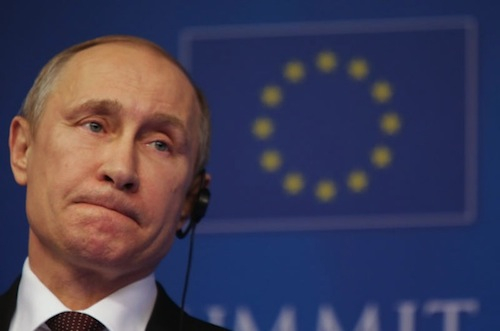Would Europe cutting off Russian oil and gas imports be enough to convince Putin to stop the war on Ukraine? According to Dr Chi Kong Chyong from the Energy Policy Research Group at Cambridge Judge Business School, the global nature of energy markets means that stopping the flow of Russian oil and gas into Europe may not be the ‘hammer blow’ that Western countries are looking for.
Russia’s invasion of Ukraine marks the darkest hours for Europe since the Second World War. Ukraine is fighting to preserve not only its territorial integrity, but its very right to exist as an independent, democratic country in the heart of Europe.
For Putin to fund his war, he relies on the revenue generated by Russian oil and gas exports to Europe. In a best-case scenario, Europe would wind down its commercial gas relationship with Russia in the coming years. But a ban on the import of Russian oil and gas is also a possibility, which would lead to an abrupt breakdown of the gas trade.
Such a breakdown would be painful for consumers, as Europe relies on Russia for at least 40% of its gas imports. Immediate effects could include switching to alternative means to generate our electricity (e.g., using more coal, oil or nuclear), or voluntarily curbing non-essential industrial, commercial and residential gas demand. There will likely be a transitory period of demand rationing and administrative measures to manage gas markets.
Russia, too, would feel the pain as the country is also highly dependent on Europe. In 2019, Russian gas exports totalled some 245 billion cubic metres (bcm), of which 88% went to Europe alone.
Most Russian gas exports to Europe are underpinned by long-term contracts, with firm financial commitment from European buyers to pay for the agreed volume, irrespective of actual imports.
According to Reuters, Russian long-term gas contracts with European buyers stand at 120 bcm per year. At the current spot price of around €227 per megawatt-hour, the value of these contracts is more than €308 billion. Without renewals, these contractual commitments will halve by 2035 and cease after 2040.
Together with a package of financial sanctions, including measures to limit Russia’s Central Bank’s access to its reserves in overseas banks, immediately limiting its gas sales to Northwest Europe will likely put additional pressure to stop the violence in Ukraine.
An important dimension to consider is that immediately halting gas imports will, unfortunately, deprive Ukraine of its transit revenue, which is estimated at €1.32 billion per year or €3.96 billion for the next three years. Needless to say, this money is hugely important to Ukraine in times of war, According to Dr Chi Kong Chyong from the Energy Policy Research Group at Cambridge Judge Business School.
However, after this transitory period, the situation will change as we develop alternatives to reduce our reliance on Russian gas in the coming years – accelerating deployment of renewables, renovating and electrifying our homes are all effective measures to reduce our dependency on gas, while meeting environmental and climate objectives.
As we attempt to reduce our reliance on Russia, the country has been growing its presence in other markets.
In the next three years, Russian gas exports to China are expected to hit at least 38 bcm per year. This is equivalent to 85% of Russia’s current supply to Germany, its largest market in Europe.
Furthermore, Russia’s liquified natural gas exports will more than double from the current level of 39 bcm to reach 81 bcm per year. Sales outside of Northwest Europe (NWE) could, therefore, account for as much as 164 bcm per year, 7% higher than the level of exports to NWE in 2019.
Unless further sanctions are introduced to stop Russia’s ambitious gas export diversification efforts, Russian gas will fund Putin’s war in Ukraine no matter what strategic decisions Europeans might take about the role of Russian gas in the European energy mix.
And for Ukraine, this is the unfortunate nature of globalisation of natural gas markets – Europe is part of a global, increasingly commoditised market, in which trade embargoes by one region will not be effective if others don’t follow.
































Discussion about this post